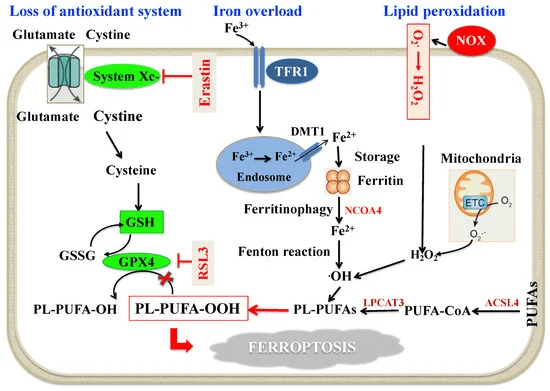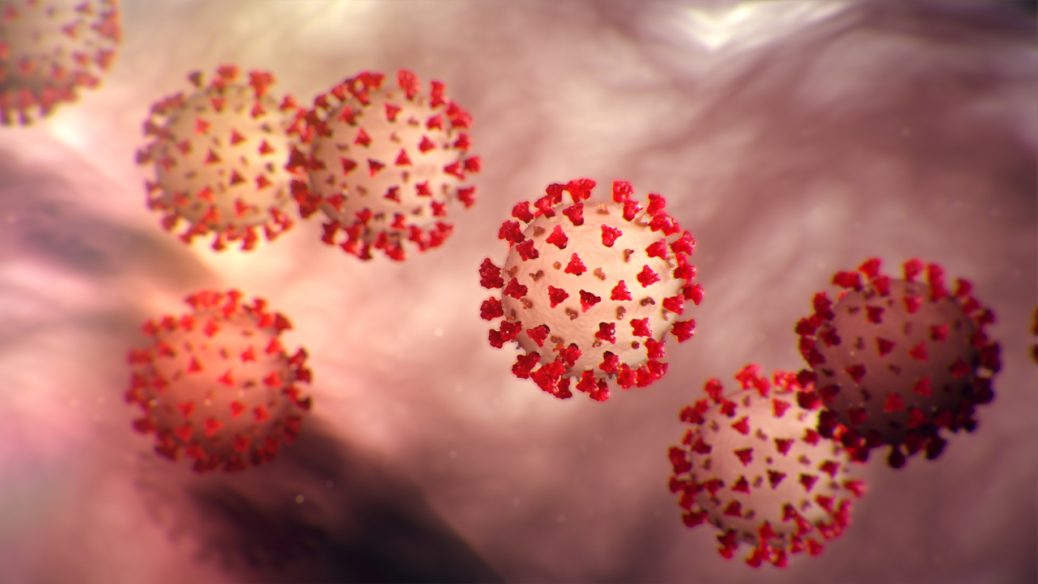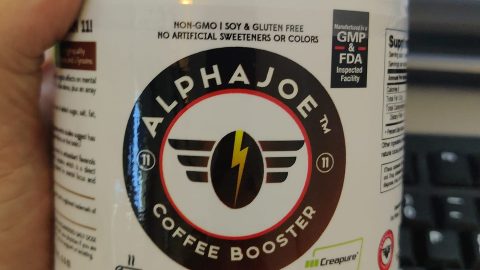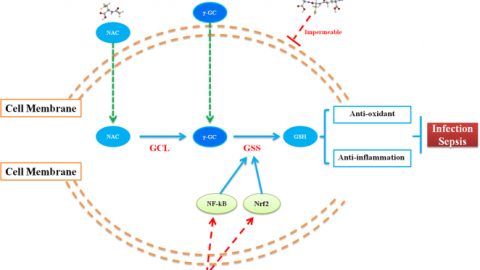As of the original posting of this article (March 2020), data and clinical experience from medical professionals employing some of these modalities has convinced me I had it right from the start on first posting of this article. As of this update (Feb 2021, Aug 2021, Sept 2021, Nov 2021, Jan 2022, May 2022, Oct 2022, Feb 2023) additional data has further supported the model below and recs there in.
Before we get to that, remember, vast majority of people who get Covid-19 will be fine and experience minimal to moderate flu-like symptoms. However, as one article stated “The virus matters, but the host response matters at least as much, and probably more, “…according University of Iowa virologist Stanley Perlman, which likely explains the wide range of effects this virus has on people. That is, those in good health with a healthy immune system appear to experience minimal effects from this virus, and those with compromised immunity, and other comorbidities such as obesity, hypertension, the elderly, those with pre-existing lung diseases, and so forth, can experience serious complications and even death. However, now that some time has passed, who gets seriously ill and who does not, is not as straight forward to predict as expected which may be in part due to the ACE/ACE2 Ratio of those infected. Covid-19 specifically attacks the respiratory system and the respiratory system is especially sensitive to damage from oxidative stress.
The most common life-threatening complications to Covid-19 “…sepsis was the most frequently observed complication, followed by respiratory failure, ARDS, heart failure, and septic shock” according to The Lancet (1) all of which have a high mortality rate. It’s clear that oxidative stress is a key aspect of the most dangerous outcomes of this virus and others and emerging science supports importance of oxidative stress and cytokine dysregulation due virulent viruses (2). Oxidative stress, what’s called a “cytokine storm,” or “cytokine release syndrome” * and sepsis, are interrelated phenomena with a simplified model of:
Formation of ROS -> Oxidative stress -> Cytokine storm -> Sepsis, Severe Acute Respiratory Syndrome, and related sequelae.
To repeat, that’s a generalized/simplified model, and the exact relationship between them, as well as the pathophysiology of the latter two, has not been fully elucidated. However, I’m confident that positively impacting any of the three has direct or indirect benefits to all three and an extensive review in support of that model above, can be read here. It must also be noted that reactive nitrogen species (RNO) also appear to play a role in the overall oxidative stress reactions and pathways, most data seems to indicate ROS as the primary of the two, so ROS is what’s focused on within this article going forward.

To break this down a bit, Covid-19 appears to interfere with heme iron metabolism, and that causes a major increase in oxidative stress via an increase in free iron ions “…the body will accumulate too many harmful iron ions, which will cause inflammation in the body and increase C-reactive protein and albumin. Cells react to stress due to inflammation, producing large amounts of serum ferritin to bind free iron ions to reduce damage.” (3). While it’s been questioned whether the increase in oxidative stress is due specifically to the free iron, recent review papers continue to suggest iron as a key player in the model I propose above and should be addressed directly, via use of iron chelators such as lactoferrin – a peptide I have been writing about for over two decades – and other modalities. The primary mechanism by which iron causes cell and organ damage likely via a process called Ferroptosis, and an excellent recent review paper goes into full details as to the process. That review paper is highly recommended reading that further confirms and supports the basic model I proposed above, as well as the discussion on the importance of gluthathione that follows below. (4)

Summary: Focusing on the actual initiator of the cascade (formation of ROS) vs the downstream effect (hyper inflammation) is a major missed opportunity for treatment that will reduce serious complications and death, as well as having implications for post covid syndromes/long covid.
What is abundantly clear as of this writing; oxidative stress via formation of ROS and their derivatives appears to be a key initiator of the hyper immune response seen in those who experience serious illness, complications, and death from this virus, as well as tissue and organ damage that often exists. What’s often overlooked is the fact that ROS are themselves signaling molecules for the release of pro-inflammatory cytokines.
The result of cytokine storm: the immune system is unable modulate itself properly and pro inflammatory cytokines are over produced, the lungs are flooded by immune cells which attack lung tissue, and a cascade effects takes place and serious illness and death may follow. An excellent review discussing the role of oxidative stress in one of the most serious complications from Covid – Severe Acute Respiratory Syndrome – can be read HERE.
The use of the broadly immunosuppressive Corticosteroids are often employed in such situations, and more targeted immune modulating drugs such a tocilizumab are being utilized, and various anti-viral medications to develop a cocktail that can effectively combat this virus. Another promising drug with a long history of use and excellent safety profile showing promise for covid treatment is Ivermectin, but continues to be controversial as it pertains to covid. What value Ivermectin offers for mitigating the severity of covid is unclear at this time and clinical trials to answer that Q are underway, but the data and clinical experience that does exist, suggests a benefit.
That brings us to sepsis, which is directly related to cytokine storm syndrome, but one does not always lead to the other and they’re not interchangeable syndromes. However, they share specific commonalities in how they play out via the excessive production of pro-inflammatory cytokines (such as IL-6, Il-8, IL-10, IL-18 and TNF-α)
which leads to multi organ failure if not quickly controlled. Sepsis results from the complicated interactions between the infecting bacteria or viruses and the host immune system which can “…trigger a cytokine storm, which is often detected in patients with sepsis.” (5)
Hence, the two, while technically/medically different, are directly interrelated.
I will link sources below for those who wish to see the how and why of the dots I’m attempting to connect, but make no mistake, 100% accurate or not as to the dots I’m connecting, there will be information supplied that could very likely save lives for those who experience those rare, but deadly, complications of this virus. While not fatal, damage to various organs and tissues via a less acute and robust immune response driven by ROS likely the cause of what’s now being called “post Covid syndromes” or “long covid.” Evidence suggests the underlying mechanism of long covid is likley the same as it is for acute injury and damage from covid: oxidative stress due to ROS formation creating tissue/organ damage and mitochondrial dysfunction. It’s estimated up to 30% of those who have experienced a covid infection, even those who did not experience severe symptoms, can experience long covid. Melatonin may be of benefit during covid infections to reduced severity, recent data suggests a benefit with long covid and additional information on long covid can be located HERE.
It’s time we went outside the box of traditional treatment on this, as the mortality rate for those who experience those complications is unacceptably high and the routes by which they can be drastically reduced easy to deploy, inexpensive, and non-toxic. Again, nothing that follows is recommended in place of traditional approaches via medical care, but adjuvant to it. Finally, if employed early enough with Covid infections, may alleviate or mitigate post covid syndromes.
Both nutrition and targeted supplementation will benefit those with covid by both reduction of risk factors for serious complications and death as well as directly support immunity. While it’s prudent to keep ones anti-oxidant defenses up via the ingestion of key nutrients, it’s unclear what benefits would be had via oral ingestion in terms of the course or severity of disease with Covid-19, but studies do indicate vitamin D status for example is strongly correlated to the severity of Covid. IV administration of several key compounds may prove to be highly valuable however in greatly reducing the damage caused by oxidative stress, cytokine storm, and sepsis and related pathology. Current recs based on available data would be an IV containing:
Vitamin C, Thiamine, N-acetyl cysteine (NAC), reduced glutathione, zinc, plus Hydrocortisone (if indicated by a physician based on most recent data). The combination of vitamin C, thiamine, and Hydrocortisone, was found to be considerably more effective for treating sepsis than Hydrocortisone alone. (6). Recent studies using photobiomodulation have also demonstrated benefits in cardiopulmonary and hematological damage caused by Covid and should be employed, and likley of value with long covid. While the study linked used a specifically designed vest to deliver the photo therapy, there’s no reason to think various panels commercially available emitting the appropriate wave lengths (the study linked used 940 nm) and of sufficient intensities will not be of benefit also.
The importance of glutathione support in any covid protocol can’t be overstated, as glutathione is essential for mitigation of ROS and systemic oxidative stress, and oxidative stress/glutathione deficiency a known component of covid in both severe cases and even in mild cases. For example, Just published in the Journal Of Infectious Diseases, a study found the simple addition of NAC – a glutathione precursor – at 1200mg per day orally significantly reduced rates of mechanical ventilation and mortality in with hospitalized patients with COVID-19 pneumonia, with reductions of progression to severe respiratory failure (SRF) and mortality. That’s an extremely important finding and further supports the fact any approach to covid treatment or reduction of symptom severity must include a method of raising GSH levels.
To stress yet again, the importance of glutathione can’t be underestimated here, and a recent paper posits that endogenous deficiency in GSH is the “…Most Likely Cause of Serious Manifestations and Death in COVID-19 Patients” and just published a tour de force of a review paper on the potential benefits of NAC with Covid to read HERE. Finally, the must read papers that brings the above together: the importance of GSH, ROS formation, cytokine storm, and severe inflammatory response triggered by covid is HERE, as well as NAC, and reducing the impact of covid via maintaining GSH is HERE Any protocol or approach that does not address the importance of GSH in the pathophysiology of covid is an incomplete and sub par protocol in my view.
Another recent study with 10 patients – who were on hydroxychloroquine – found life saving benefits to the addition of NAC alone, and can be viewed HERE. One small study found benefits of NAC in ARDS. One excellent review paper discusses how NAC may prevent COVID-19-associated cytokine storm and acute respiratory distress syndrome is HERE.
Bottom line: the importance of sustaining GSH levels in the treatment of Covid and its complications – both acute and chronic – can’t be overstated, and that also applies to virtually all viral infections, but appears especially important with covid. That damage via ROS, which GSH the key player in controlling, happens at the level of the mitochondria, and must be addressed, or the treatment approach is sub par and incomplete. Orally, whey protein has been shown to raise cellular GSH levels, as well as containing various fractions (e.g. lactoferrin, etc) that will be of benefit. See discussion below on oral supplementation. The most comprehensive review of the importance of GSH and its importance and role in the pathophysiology of covid just published is “Glutathione deficiency in the pathogenesis of SARS-CoV-2 infection and its effects upon the host immune response in severe COVID-19 disease” and a must read paper for those who want much greater depth and details than supplied in this article.
Below – via Dr. Jimmy Gutman – a short discussion on the value of glutathione (GSH) as it applies viral infection and literature list supplied, as well as routes of increasing GSH, such as using whey protein, is worth a read, as whey may more effective for raising GSH than NAC. It should be noted that some studies did not find benefits from the Vitamin C, Thiamine, Hydrocortisone therapy (7), but I strongly suspect synergism to exist with the addition of NAC and glutathione and another study found benefits of the Vitamin C, Thiamine, Hydrocortisone combination on another known complication of Covid-19, severe pneumonia (8). Finally, it should also be noted the Chinese government recommends the use of IV vitamin C for covid-19 infections, but has used much higher doses than the studies I have cited, “…from 50 to 200 milligrams per kilogram body weight per day to as much as 200 mg/kg/day” or 4,000 to 16,000 mg for an adult.
Oral Ingestion Of Key Supplements?
As mentioned previously, whether oral ingestion of those and other compounds will assist in reducing severity, and potential for complications, if one is exposed to Covid-19 is unclear, but supporting host immunity with key nutrients is clearly warranted in my view. Whey protein (as glutathione and immune enhancer), and or NAC, vitamin C, and apo-lactoferrin, zinc, magnesium, and vitamin D, may be of value as general immune enhancement specific to viral infections. That would be the minimum list of supplements to consider, and there’s additional supplements and other compounds to consider as well. It must be stressed that the IV route is essential however if it’s as serious as cytokine storm, and ARDS, and must be employed – concomitant with Corticosteroids and other medications (e.g. antibiotics, vasopressors, fluvoxamine, etc.) as directed by medical professional – as early as possible. As far as other drugs and nutrients to consider for oral ingestion as a preventive measure, the Life Extension protocol to Support Respiratory Immune Health is worth a read HERE.
GLUTATHIONE AGAINST VIRAL DISEASE – A SPECIAL MESSAGE – Dr. Jimmy Gutman:
Over the past few weeks, I have received numerous questions about the coronavirus and whether raising glutathione can offer some protection. For the sake of time and efficiency I have written this message. My answer is that I believe there is an very important role for glutathione in this situation, but I do not have any direct studies to prove my point. Thus far, no clinical trials have been published looking directly at the role of glutathione in the treatment or prevention of coronavirus.
Why then do I support the idea of raising glutathione as an effective strategy. It is based on the hundreds of other studies where glutathione has been shown to positively effect the outcome in numerous other viral diseases and plays an important role in the development of these infections. Doing a bit of searching on www.pubmed.gov will reveal articles on glutathione from the common cold (rhinovirus), to the “Flu” (influenza), to AIDS/HIV, hepatitis A, B, and C, DNA viruses, RNA viruses, retroviruses and more.
To simplify, the majority of viruses studied thrive in an environment of low glutathione and high oxidative stress.I have listed a small sampling of these studies below for those that want to pursue this research below.
Dr. Jimmy Gutman author of The Comprehensive Guide to Glutathione
Glutathione as an antiviral – A sampling of the literature
https://www.ncbi.nlm.nih.gov/pubmed/21358592
https://www.ncbi.nlm.nih.gov/pubmed/18926849
https://www.ncbi.nlm.nih.gov/pubmed/16787218
https://www.ncbi.nlm.nih.gov/pubmed/9367343
https://www.ncbi.nlm.nih.gov/pubmed/11115795
https://www.ncbi.nlm.nih.gov/pubmed/26692473
https://www.ncbi.nlm.nih.gov/pubmed/9568464
https://www.ncbi.nlm.nih.gov/pubmed/8441757
https://www.ncbi.nlm.nih.gov/pubmed/18678861
https://www.ncbi.nlm.nih.gov/pubmed/12368227
https://www.ncbi.nlm.nih.gov/pubmed/31487871
https://www.ncbi.nlm.nih.gov/pubmed/29033950
https://www.ncbi.nlm.nih.gov/pubmed/9230243
https://www.ncbi.nlm.nih.gov/pubmed/12654482
https://www.ncbi.nlm.nih.gov/pubmed/21366409
https://www.ncbi.nlm.nih.gov/pubmed/24899897
https://www.ncbi.nlm.nih.gov/pubmed/24899897
https://www.ncbi.nlm.nih.gov/pubmed/28039563
https://www.ncbi.nlm.nih.gov/pubmed/8891667
https://www.ncbi.nlm.nih.gov/pubmed/9164274
https://www.ncbi.nlm.nih.gov/pubmed/26663823
https://www.ncbi.nlm.nih.gov/pubmed/8256245
https://www.ncbi.nlm.nih.gov/pubmed/19151318
https://www.ncbi.nlm.nih.gov/pubmed/25135637
https://www.ncbi.nlm.nih.gov/pmc/articles/PMC5425915/?
N-acetyl cysteine A good summary on NAC doses, oral and IV, uses via WebMD HERE for non scientists.
Great page on all things NAC and Covid is HERE
Sources:
(3) COVID-19 Disease: ORF8 and Surface Glycoprotein Inhibit Heme Metabolism by Binding to Porphyrin
(4) Is Ferroptosis a Key Component of the Process Leading to Multiorgan Damage in COVID-19?
(5) Role of Cytokines as a Double-edged Sword in Sepsis
(6) Hydrocortisone, Vitamin C, and Thiamine for the Treatment of Severe Sepsis and Septic Shockh
*= AKA coronavirus, Wuhan virus.
*= “cytokine storm,” or “cytokine release syndrome” may have differences, but in this article, they’re viewed/treated identically.

Will Brink is the owner of the Brinkzone Blog. Will has over 30 years experience as a respected author, columnist and consultant, to the supplement, fitness, bodybuilding, and weight loss industry and has been extensively published. Will graduated from Harvard University with a concentration in the natural sciences, and is a consultant to major supplement, dairy, and pharmaceutical companies.
His often ground breaking articles can be found in publications such as Lets Live, Muscle Media 2000, MuscleMag International, The Life Extension Magazine, Muscle n Fitness, Inside Karate, Exercise For Men Only, Body International, Power, Oxygen, Penthouse, Women’s World and The Townsend Letter For Doctors.
He’s also been published in peer reviewed journals.
Will is the author of the popular e-books, both accompanied by private members forum access , Bodybuilding Revealed & Fat Loss Revealed.
You can also buy Will’s other books on Amazon, Apple iBook, and Barnes and Noble.








Dear Will,
Thank you for the information. I take Azathioprine, an immunomodulator, for colitis. Any information on how Lactoferrin caps may interact with that drug? I called my GI Doctor and have yet to get a call back. Also, I asked my PCP yesterday, and he looked to see what he could find online. He was fairly uncertain in his answer. I’ve heard that Vitamin C and Melatonin helps to keep you from contracting COVID-19. I’ve already increased my Vitamin C intake. I”m not sure how Melatonin would react with Azathioprine or any of the drugs I take for high blood pressure.
I have two concerns: 1. Am I at a greater risk for contracting the virus, because I take Azathioprine? 2. Will my immune system have a more difficult time fighting the virus, because I take Azathioprine? I have yet to get solid answers. This article has provided more information than I’ve found recently. I’m not surprised. You always have solid information.
Thanks!
Mike
There’s not enough data to answer the Azathioprine + lactoferrin Q. As far as vite C, and Melatonin, see LEF protocol linked. No supplement will prevent one from getting that virus per se, but improving host defenses is always a good idea.
https://www.researchgate.net/publication/326668193_High_Dose_Intravenous_Vitamin_C_and_Influenza_A_Case_Report
Good read, thanx!
So,if i understand with NAC(precursor of glutathione) you can stop that viruses?
tnx for txt
No, but it may help. Please read what I wrote closely. I realize it’s dense article and complex topic.
Will
it not be that glutathione is poorly absorbed by the stomach, being better in any case to take Whey protein
Note that Glutathione is recommended in the IV only…
Thanks Will another
head banger article
Err, what?
Brilliant as per usual Will. You are the Tom Brady of knowledge!
I just found your site this morning…You are bookmarked!…I will be reading for days<<<
Thank you for all your work in creating this fantastic site….
What do you think of covd-19 and high altitude pulmonary edema…Diamox is treatment for that, I believe…I have read that the mountain guides in Nepal also recommend garlic and cloves before the trek up the mountain….I believe both mountain sickness and the virus have a common presentation…
Again thank you for your informative site…
Will
Thanks for the info.
hey Will, is there a dose you recommend for the zinc supplementation to optimize immunity in healthy men?
Follow the link to the LEF protocol in the article for zinc dose rec.
As expected, Will Brink’s unique perspectives serve as an extremely valuable “outside the box” strategy. His ability to assemble and integrate disparate sources of information into a cohesive strategy is always refreshing. THANKS!
Thanx Doc!
Wish people would put more emphasis on building up their immune system than wearing their face masks that they do not enough put on correctly. and keep touching with dirty hands.
I can’t disagree with that!
I visit daily a few sites and blogs to read articles or reviews, except this website presents
quality based content.
Hello,
I read your article, but I would like to ask for clarification.
You say in the comment that “Glutathione is recommended in the IV only.” You mean IV as a needle into the arm so it reaches the bloodstream right away? That’s the only IV I heard of, but perhaps I’m missing something.
However, your article mentions that NAC is good to. So, if the IV route is out of reach for majority of people, would NAC be a good substitute because it contains glutathione?
Would this list of vitamins (Vitamin C, Thiamine, N-acetyl cysteine (NAC), glutathione, zinc, plus Hydrocortisone; also Vitamin D) be acceptable to give to anyone including children on a daily basis or every other day?
If not all of them, which ones would be best to take?
Our family hardly ever takes any vitamins (the doc has said if we maintain healthy diet then vitamins we get from veggies, fruit and fish, meat too, suffice), so pardon me because I have to ask this: Would we need to find individual vitamins and take each of them or is there a compound version that contains the majority of them? I know I have Vitamin D, iron, and zinc in a cabinet, but nothing beyond that :-).
Your answer would be appreciated
IV is intravenous yes. NAC does not contain glutathione, but helps increase glutathione levels and can be oral or IV per article. Whey does the same per vid linked in article, but is oral only of course. Use of Hydrocortisone or similar used only by medical pros under medical supervision and requires a prescription and only used if needed. All are safe for any age, but children are at very low risk of serious complications. I also did a full vid covering all that with more info here: https://www.youtube.com/watch?v=LVMlsW53kiE&t=6s
I recovered from COVID by nebulizing 3% food grade H202 with sterile saline and taking high dose vitamin C powder. Nothing else touched it and I’d been supplementing with vitamin D3 and NAC for ages before. if you’re not already aware of this protocol, look up ‘Dr. Mercola: Nebulized Peroxide, the Single Most Effective Early Strategy’ In my case it was late stage and this protocol saved my life!